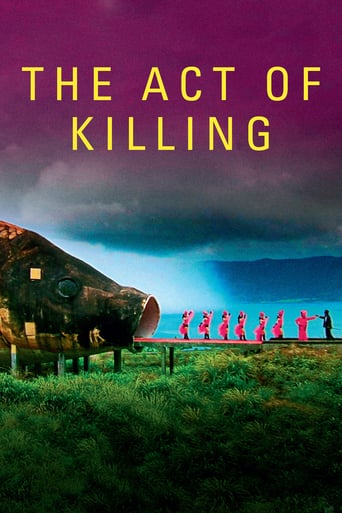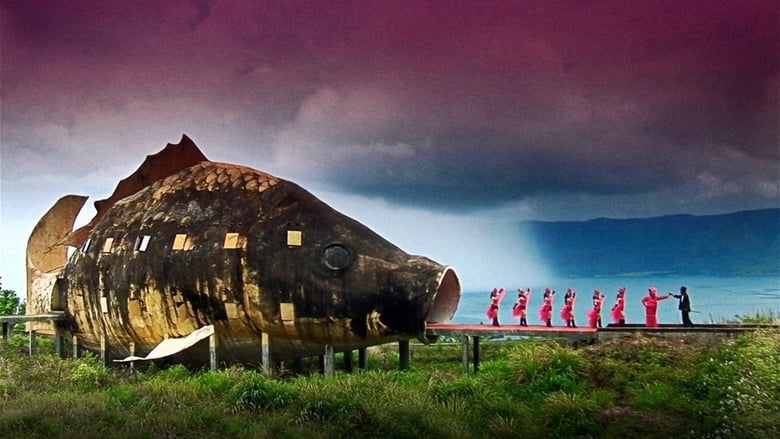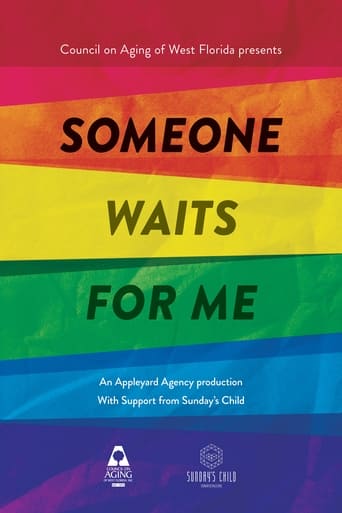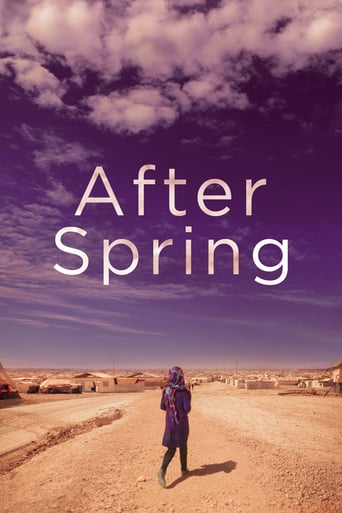The Act of Killing (2013)
Filmmakers expose the horrifying mass executions of accused communists in Indonesia and those who are celebrated in their country for perpetrating the crime.
Watch Trailer
Cast
Similar titles
Reviews
Perfect cast and a good story
Absolutely Fantastic
Although it has its amusing moments, in eneral the plot does not convince.
Great example of an old-fashioned, pure-at-heart escapist event movie that doesn't pretend to be anything that it's not and has boat loads of fun being its own ludicrous self.
I watched this doco in a small theater room that was full of people. Usually, when you are in such places every tiny movement or just breathing are magnified sounds. What happened in this screening is something I have never experienced before of after. There was a thick silence, total, like there was no air in the room, like nobody was breathing, nobody was moving, because nobody was.The Act of Killing is a documentary that re-enacts the atrocities committed by some of the death squads against people accused of being Communists in Indonesia in 1965-6 as told by two people directly involved in the killings.This doco creates a hollow in your heart that is difficult to refill. This is so because one loses hope in humanity when watching the story. First, is the realization of the massacres (of which I have no idea), then the extent of those killings, the details of what was done to those people and their babies, the sort of torture applied to them. Secondly, all of this is not told by the victims is told by the direct torturers.This documentary will not leave you indifferent. It doesn't want to provoke just for the sake of getting you talking, it will provoke you because what it tells is sadly true; because it digs into human nature to see if we are, after all, good in essence, and because those telling about the massacres aren't the victims but apparently normal people who are proud of what they did. The documentary is good because is able to show different faces of the torturers, dig into their daily life, their family relationships and into their psyche to find out if there is some sort of regret and remorse or not.The director does a great job in the one-to-one interviews with the torturers, as they are treated with courtesy, humanly, even affection, with some sort of emotional detachment. He asks calmly and let them speak. This is not to say that the director has no judgment, but the interviews do explicitly avoid confrontation or direct judgment.Some of the images of the film are haunting and beautiful, like the one that made it to the poster. Most of them, however, are grim, grayish and reflect the horrors that the documentary narrates.Part of the Indonesian crew did not include their name in the final credits for obvious reasons, as the massacres are still justified and the dead of so many "Communist" laugh about on public TV.Unforgettable, sadly for the wrong reasons.
The 1960's saw great political upheaval in Indonesia, with then- President Sukarno being overthrown by Suharto, and the Indonesian Communist Party finding themselves the subject of a widespread propaganda smear campaign. Death squads were created to systematically wipe out the Communist party and anyone suspecting of sympathising with the organisation. Between 1965 and 1966, it is estimated somewhere in between of 500,000 and 1 million Indonesians were murdered in a massacre widely ignored by Western countries. Shockingly, the heads of the death squads still hold power and influence in their country, with many now employed as high-ranking military officers.A straight-forward documentary covering the topic would have no doubt been a powerful and upsetting experience, but director Joshua Oppenheimer, along with co-directors Christine Cynn and somebody listed as 'Anonymous', have rejected this approach and, with The Act of Killing, have subverted the genre entirely. Obviously appalled at the countries failure to highlight the atrocity and punish those responsible for the crimes committed, Oppenheimer has instead opted to give the killers the opportunity to tell their own story. Yet rather than talking-heads juxtaposed with archive footage, Oppenheimer gave them a film crew and the freedom to depict their acts in a movie of their own making. The results, quite frankly, are utterly astonishing.Portraying their war crimes in a variety of genres that range from musical numbers and film noir to westerns and bizarre dream-like sequences, their cinematic vision is naturally cheesy and poorly handled, complete with bad acting and stodgy dialogue, with one gangster over-eager to dress in drag in an effort to lighten the tone (and succeeding in the process). However, Oppenheimer isn't interested in the final product (which we don't get to see), but how the film-making process affects those involved. At first, these killers, rapists and torturers are utterly loathsome, demonstrating absolutely no remorse whatsoever about their actions. One, Anwar Congo, gleefully displays his efficient method of murder, which involves strangulation by wire, while another boasts to his friends about the delights of raping a 14-year old girl.Yet Congo, who is viewed as a sort of celebrity in his country, starts to reflects on the pain and suffering he has caused. In one scene, he plays a victim being interrogated while tied to a chair. When the wire is tied around his neck, the experience has a profound affect on him, sitting motionless in silence as his friends look concerned and baffled. He later watches it back, transfixed, and starts to break down. The Act of Killing is careful not to sympathise with its subjects (Oppenheimer quickly points out to Congo that his victims' experience would have been far worse), but at least tries to understand them. It's less about the atrocities Indonesia experienced than the act of killing itself, and what could possibly drive anybody to such cold-blooded barbarity. It's a powerful and moving experience like no other movie I've ever seen, and it is no overstatement to hail this as one of the greatest documentaries ever made.
Like many viewers of the documentary I had zero knowledge of the events that are remembered here, and on a fundamental level it has already succeeded by bringing its topic into the public sphere. It is of course political; on a secondary level Oppenheimer seeks to reveal it to the American public and their deeply hidden involvement in the mass killings. But I am struck by how little this agenda exists on a surface level; Oppenheimer seems to be not immediately concerned with the objective of unearthing deep-seated remorse from these subjects, if there is any. Filming took reportedly 8 years - there is patience behind the camera, as if the filming is guided by the killers themselves. This is our chance to show ourselves for who we are, they say. And yet they are so freely depicted discussing what to omit from the film, and their greed and corruption, and how they are revered in the public sphere. Such a confidence and reputation is baffling to the western viewer. So Oppenheimer follows them and their pursuit; from their journey as low tier ticket scalpers all the way to death squad leaders. Their history has influenced them, and they re-enact their past in the vein of their adored movie stars. One scene has them dressed in traditional gangster outfit, torturing a victim while an eerie green light bathes the background. Another has the killings symbolically via a grotesque tribal sacrifice/meal. In the most vivid of their stories, victims, perpetrators and dancers alike are dressed in the most lurid costumes, the sunlight is deliberately overexposed to give the scene a heavenly aura, and Anwar Congo himself wears a glimmering gold medal and is praised for his past actions. Oppenheimer freely props these glorified dramatisations up; or rather he allows the killers to rewrite their own history. More disturbing is the freedom with which they boast and tell their stories with pride. There is still a deep running sentiment of anti-communism and political corruption everywhere they go. They casually talk of their killings while playing golf and drinking, recreate their brutal methods with pride, and even gain the approval of political party members. One story Oppenheimer relays is the reality in which Herman would shake up the Chinese shopkeepers without fear and keep the film rolling, and then secretly he would go back and compensate the owners for their money lost. There is a powerful sense of complicity and responsibility that is owed to Oppenheimer for capturing this act. Does it veer into artifice? Perhaps once, as he captures the fiery re-enactment of a takeover of a village where the camera hovers nervously and close-in and the sound is cut to heighten the brutality of the images. And then they shout Cut! and it cuts back to a wide shot and everyone is all smiles. Well not everyone - the children don't quite understand, and even the director admits it is not a good look. The most talked about scene is the last one - a revisit to the rooftop by Anwar where he carried out so many of his reported 1000 kills. It has been paradoxically deemed both horrific and upsetting as well as artificial. But the beauty of documentary is that both interpretations are equally valid. We see throughout that Anwar is increasingly struck by his past actions. He attempts to shield himself from this realisation: he imagines his victims thanking him for killing them, he props up his young grandchildren and is happy to see them denounce the video as 'boring', and offers up a cheap confession as if he has now fully learned exactly how his victims felt before the death blow. And he tears up, and retches repeatedly, uncontrollably - whether genuine, or played fake to appear remorseful, it is ultimately shallow. Oppenheimer feels no need to comfort him because the full experience can never be recreated - not with talking heads, not with dramatic re-enactment, not with feigned acceptance. Those blindly grabbing for catharsis or redemption need to realise this.
Joshua Oppenheimers "The Act of Killing" is an experience unlike anything I have ever witnessed before. Its a tour de force of emotions, guilt, evil and redemption. It grabs your heart and punches you in the stomach in a way no other documentary has ever done.Oppenheimer goes to Indonesia to interview some of the leaders of the death squads that were responsible for millions of deaths during the purge of 1965. He find them as aging men with powerful positions in the society they help to shape with violence and brutality that makes you question the very essence of mans capabilities. We meet Anwar Congo. Film lover, fashionista and loving grandpa. And responsible for killing more than 1000 people by himself during the purge. Anwar is viewed as a hero by the people of his community and he has never been brought to consider that what he did was murder. Oppenheimer challenge Anwar Congo and some of friends to recreate some of their killings to make a movie and during the filming, Anwar transforms. He begins to realize that what he did MIGHT have been wrong. Its a heartwarming transformation and a human being is born. The documentary challenges the conventions of the genre and has become the new benchmark for how you can tell a story of such magnitude and complications. You can't afford to miss it!






